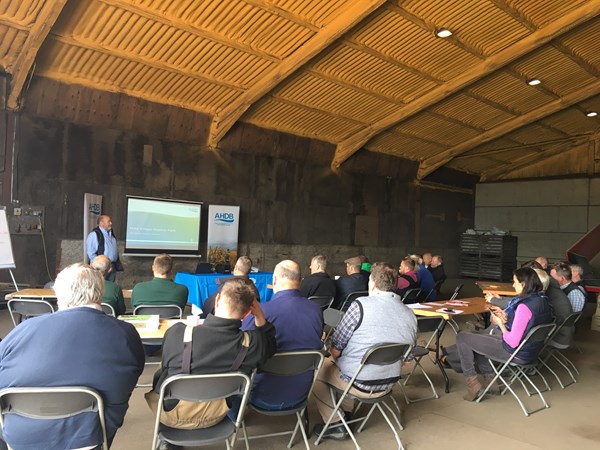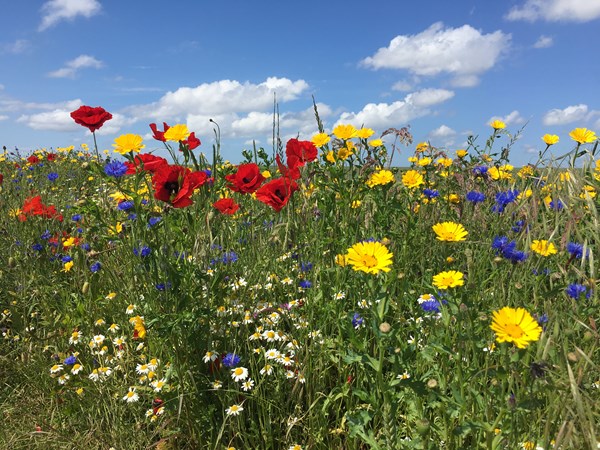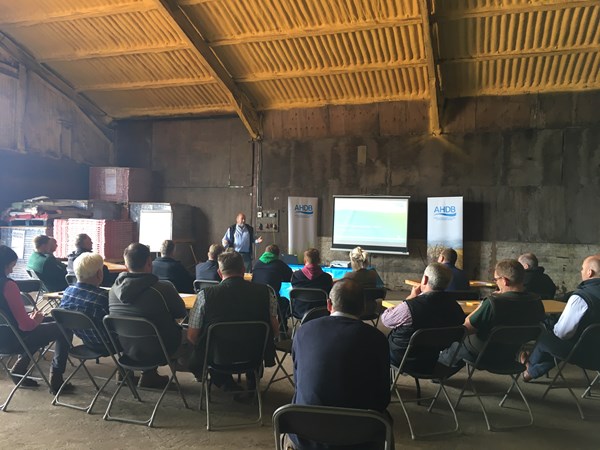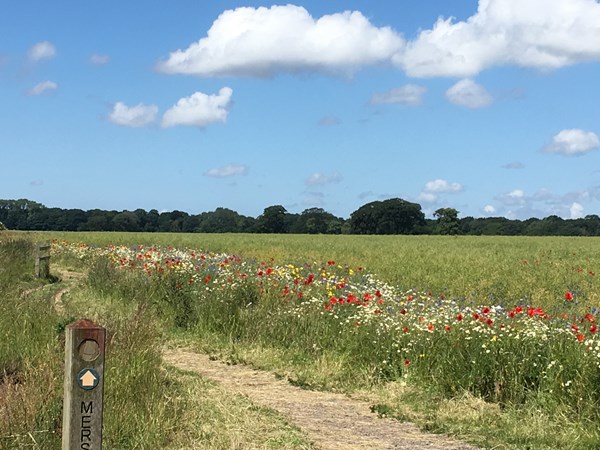- Home
- Projects
- Farm Excellence
- Hale Village Monitor Farm
Hale Village Monitor Farm
About Hale Village Monitor Farm
- Manor Farm has been a Monitor Farm since June 2019
- Bill's arable rotation includes wheat, oilseed rape and spring barley, winter barley and potatoes
- 417 ha farm with a range of light the medium-heavy land
Bill Webb farms with his son at Manor Farm in Hale Village on the Mersey estuary. They grow wheat, OSR and potatoes along with spring and winter barley in a 417 ha arable area with soils ranging from light to medium-heavy.
Everything grown at Manor Farm, bar the barley, is sold to customers within a 20-mile radius of the farm. Localism and a strong supply chain are at the forefront of Bill’s business, and he hopes to bring more region-specific knowledge back to the North West over his time as a monitor farmer.
Prior to becoming a monitor farmer, Bill was already experimenting with some direct drilling, as well as the use of cover crops, wildflower margins and implementing fodder radish as a biofumigant. These practices were identified as a foundation to build upon over the coming three years, see the Hale Village Monitor Farm launch meeting report for more details.
Past meetings and updates
Regenerative agriculture: the journey and the research - 9 - February 2023
Independent agronomist Nick Woodyatt visited Hale Village to discuss his approach to regenerative agriculture and the work he is doing with farmers across the country. Nick also gave details regarding the regenerative management trial Bill is running.
Also in attendance were Paul Cawood (Spunhill) and Joe Collins (Harper Adams University) who talked about their research on the impact of different farming approaches.
Managing arable farms in a volatile world – 12 January 2023
Discussion at this meeting saw James Webster (The Anderson Centre) cover the impact of rising costs of inputs and Gary Phillips (ODA) give guidence on how to make the most out of your grain marketing. Nicola Hall (Elm Associates) also spoke at the meeting, giving an overview of environmental scheme options.
Tyres, traction and compaction – 1 December 2022
At the first meeting of the 2022/23 winter season, Bill gave an review of harvest 2022 and Harry Henderson (AHDB) demonstrated the importance of paying attention to tyre pressures and soil compaction.
If you would like to be included in the email invite list for future meetings, contact Michelle.Nuttall@ahdb.org.uk or alternatively call on 077781 43404.
Land drainage and it's undervalued role in farming's future – 10 March 2022
Philip Wright (Wright Resolutions), visited Manor Farm in March 2022 to discuss proactive land drainage, correct set-up of cultivation equipment and considering soil structure.
Making the most of nutrients – 17 February 2022
Dave Towse (CF Fertilisers) talked about how to maximize your return on investment and respond to the price of nitrogen for next year's arable crops. Dave also covered work CF have carried out looking at sulphur rates.
Michael Kavanagh (Church Farm) also spoke at the meeting, detailing his regenerative farming approach that has enabled him to cut costs as well as cut out bagged P and K.
Looking at the alternatives: Rye, triticale or livestock – 20 January 2022
John Burgess (KWS) gave a snapshot of the alternative cropping options of rye and triticale. Describing realistically how could it work on farm and what are the markets.
Lizzie Sagoo (ADAS) followed, discussing the option of including livestock in the arable rotation.
Farming environmentally and profitably – 16 December 2021
Marek Nowakowski reviewed the latest information regarding stewardship schemes and advised where Bill may be able to take advantage of them, breaking down what he'd have to put in place to do so.
Preparing for zero carbon farming – 18 November 2021
At the first winter meeting of the 21/22 season, Bill gave an update on the farm, harvest and winter planting. The group also looked at how farms could start preparing for zero carbon farming, with Sarah Wynn (ADAS) leading a discussion on how carbon calculation can assist arable farmers in managing their zero carbon targets.
Benchmarking soils and business – 7 November 2020
A small-scale soil assessment and worm count were carried out in bare and cover-cropped soil. This evaluation was a pre-cursor to what would become the Soil Health Scorecard, a tool created as part of the Soil Biology and Soil Health Partnership.
The scorecard consists of several key soil health indicators that, once tested for, are ranked against national and regional soil scores. This makes it easy to identify areas where your soil can be improved.
More information on the Soil Health Scorecard along with case studies of its use can be found here: Testing the soil health scorecard | AHDB
North West and Northern Ireland Monitor Farms summer meeting – 25 June 2020
Bill gave an overview of what proved to be a difficult year at Manor Farm, extreme weather windows and the farm’s first encounter with cabbage stem flea beetle saw OSR having a particularly hard time. Despite this, Bill did have some positives to report:
- Successful diversification - sowing winter beans in response to changes in the market
- New wheat variety Firefly performed very well
- Wildflower borders were a great success and even saw commercial value (article)
- Pressure from fungal disease was low – opening up opportunities to lower chemical inputs
- Learnt more about the importance of establishment timings when protecting OSR from CSFB
To hear Bill’s update from the meeting, use the following link: NW and NI Monitor Farm Summer Meeting | AHDB
Using Home-Saved Seed – 5 March 2020
Mark Taylor and Jim Carswell (Agrii) outlined the various terms and conditions surrounding saved-seed royalties and the detailed attributes the seed needs to be tested for before it can be sown.
Information given about various seed treatments was also distributed. You can find out more via: Hale Village Home Saved Seed Meeting Report
Labour & Machinery review – 6 February 2020
Labour and machinery costs at Manor Farm were calculated and judged to be lower than if Bill were to contract the labour and equipment out (based on 2018/29 published contractor charges), see the full breakdown here: Hale Village Machinery Review Meeting Report | AHDB
IPM & ryegrass control – 16 January 2020
This meeting focused on IPM strategies that can be applied to reduce the reliance on herbicides, also asking the question: what can be learned from organic farmers?
Find out more about IPM strategies, visit: Hale Village IPM Meeting Report | AHDB
“How to make an extra 30K?” – 12 December 2019
Discussed the financial and non-financial rewards of entering a Countryside Stewardship Scheme (CSS) and highlighted commitments that could be realistically undertaken at Manor Farm.
Potential avenues of diversification were also touched on in the meeting, find out more from the meeting report: Hale Village CSS Meeting Report | AHDB
+ See more





